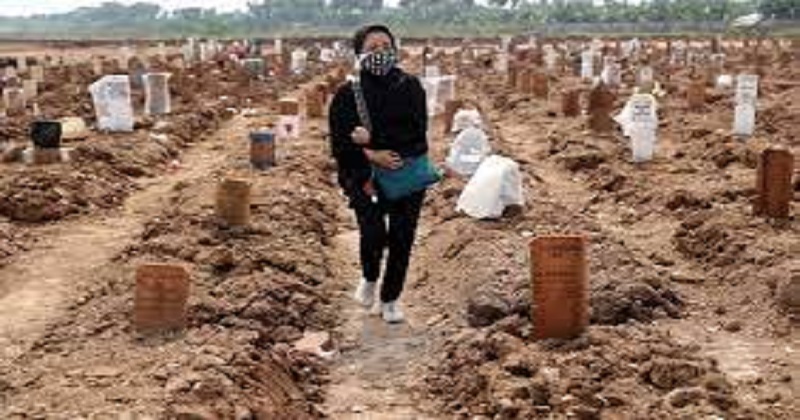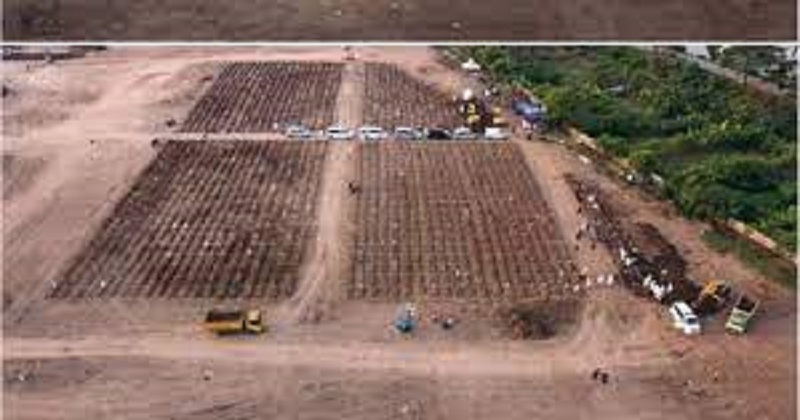
Excavators pile up the soil as they dig deep in Indonesia, carving out graves for the pandemic dead. Among rows of rectangles cut into the brown earth are rows of ambulances with flashing lights, delivering bodies to the burial site in Jakarta. Small wooden planks serve as makeshift headstones beside graves where workers in protective suits lower coffins into the ground.
A dramatic drone video of the Rorotan cemetery in the capital of Indonesia provides a chilling glimpse into an epidemic that has seen deaths and infections rise in recent weeks, pushing hospitals to the limit. Across Indonesia, over 1,040 coronavirus deaths were reported on Wednesday, more than twice the national death toll six days earlier.

Four of the five Jakarta COVID-19 burial grounds are now full, according to the department in charge of cemeteries. Indonesian Governor Anies Baswedan said the number of burials in Jakarta for people infected with COVID-19 has increased tenfold since May. According to city data, there was an average of 17 burials per day in May and 105 per day in June. 392 people were buried on Saturday alone.
Aerial footage captured by Reuters demonstrates the stark reality – a large brown clearing cut from a lush green field, rows of identical and newly filled plots, and a constant stream of ambulances and work vehicles. According to Dr. Pandu Riono of the University of Indonesia, as more cases are reported, deaths will rise. It is imperative that we maximize efforts to stop the spread of the disease. Indonesia has recorded over 2.4 million cases and 63,000 deaths, but the spread of the highly transmissible Delta variant, first identified in India, has seen record numbers on most days since June 20.

Read more: Breaking News: Tokyo bans spectators at the Olympics
On Thursday, it reported a record 38,391 cases, close to the 40,000-50,000 figures described by a minister this week as a worst-case scenario. In six cities of the most populous island of Java, oxygen supplies ran out on Wednesday, according to the Business Competition Supervisory Commission. Java and Bali governments imposed stricter restrictions last week to try to curb the outbreak. However, their response has been criticized with newspaper editorials accusing policymakers of protecting the economy over public health. The government’s trust could erode with sharp criticism and public anger because of the COVID epidemic and the collapse of the health system, said Edbert Gani, a political researcher at the Centre for Strategic and International Studies.

Post Your Comments